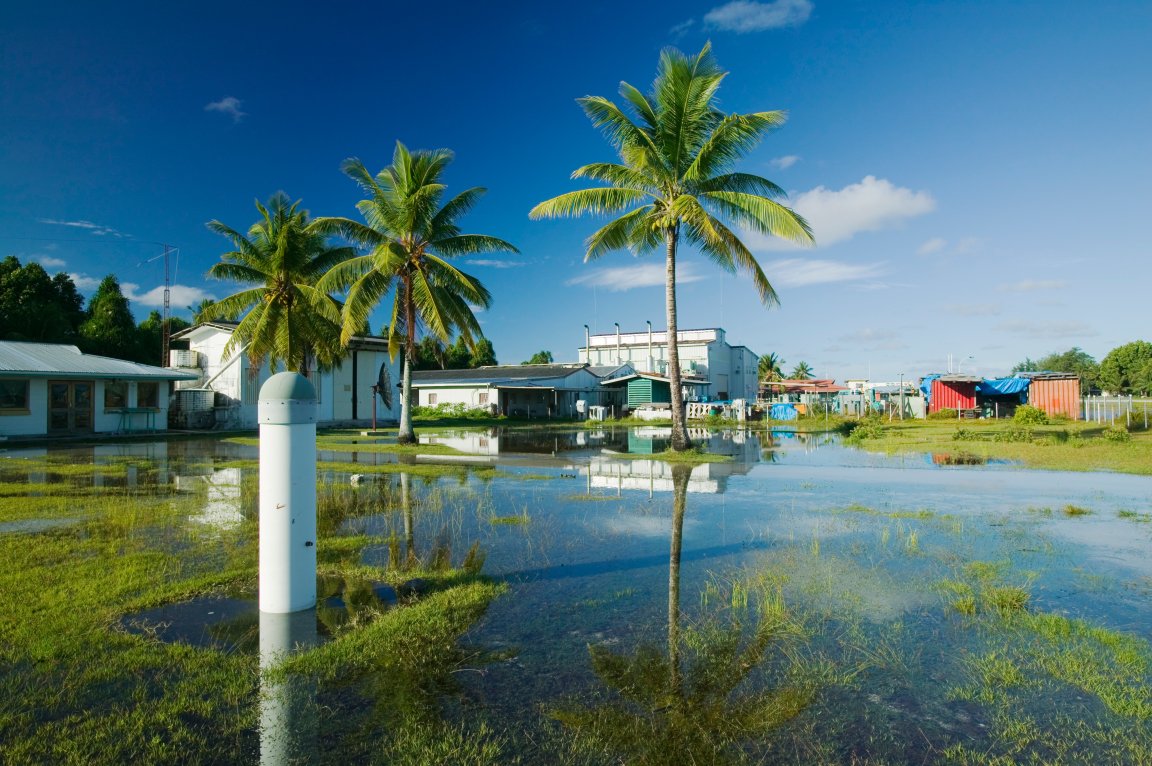
A New Visa for a Growing Threat
In 2014, New Zealand deported a “climate change refugee” seeking asylum from Kiribati, a small Pacific island facing rapid and ultimately destructive sea level rise. Three years later, New Zealand may soon be exploring a new way to help people affected by climate change: developing climate change refugee visas, a new category that would benefit those living in the Pacific displaced by rising sea levels.
As reported by The Guardian this week, the idea of a new visa comes as part of New Zealand’s Green party’s pre-election policy, which stated it would create 100 new visas. Speaking to Radio New Zealand, Green party leader James Shaw called it an “experimental humanitarian” visa category.

“It is a piece of work that we intend to do in partnership with the Pacific islands,” Shaw added.
When Ioane Teitiota, the Kiribati refugee, was deported in 2014, New Zealand’s legal code simply didn’t have a category for those seeking environmental asylum. The 1951 refugee convention only accepts those who are being persecuted based on their race, religion, nationality, or their ties to a political or religious group.
Trying to Do Better
Discussions about a new visa comes after New Zealand pledged to become a Zero-Carbon Nation by 2050, and granted a river the same kind of legal protection as a person. Despite its good intentions, however, it’s possible that climate change refugee visas would run into problems. Speaking with The Guardian, international environmental law expert Associate Professor Alberto Costi explained the country would then have to decide if climate change refugees would still be permitted to return to, or live in, their home country.
“I have sympathy, but legally it creates a big debate…there needs to be clear guidelines,” said Costi, though he added, “It’s an idea to be explored. I would welcome more clarity.”
New Zealand will need to make a decision soon, because climate change isn’t going to wait until things are in order. In September, Fiji’s Minister of Agriculture, Rural and Maritime Development, Inia Seruiratu, made it clear that addressing climate change was a “matter of survival” for the South Pacific. If nothing is done, smaller islands could be lost completely.

Outside of the Pacific, climate change and global warming continue to impact millions of people around the world. Air pollution caused by the sustained use of fossil fuels kills thousands of people a year; Hurricane Harvey affected millions of people in Texas; and Hurricane Maria left Puerto Rico without power, with only a few hospitals recently regaining electricity.
Provided the idea is implemented properly, efforts like New Zealand’s climate change refugee visas could mean survival for the millions likely to be displaced in the future.